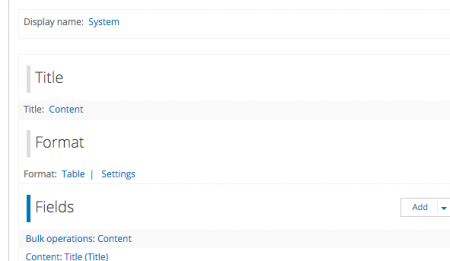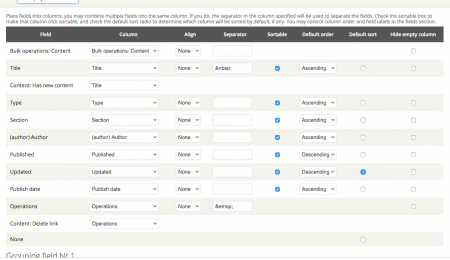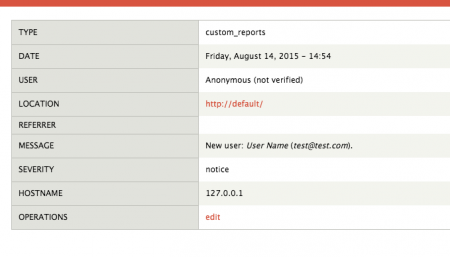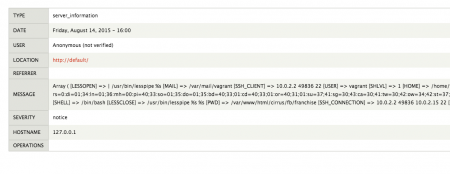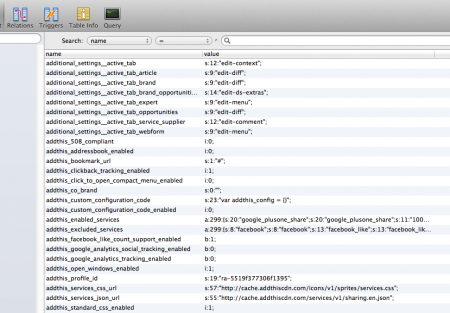function watchdog($type, $message, $variables = array(), $severity = WATCHDOG_NOTICE, $link = NULL) {
global $user, $base_root;
static $in_error_state = FALSE;
// It is possible that the error handling will itself trigger an error. In that case, we could
// end up in an infinite loop. To avoid that, we implement a simple static semaphore.
if (!$in_error_state && function_exists('module_implements')) {
$in_error_state = TRUE;
// The user object may not exist in all conditions, so 0 is substituted if needed.
$user_uid = isset($user->uid) ? $user->uid : 0;
// Prepare the fields to be logged
$log_entry = array(
'type' => $type,
'message' => $message,
'variables' => $variables,
'severity' => $severity,
'link' => $link,
'user' => $user,
'uid' => $user_uid,
'request_uri' => $base_root . request_uri(),
'referer' => isset($_SERVER ['HTTP_REFERER']) ? $_SERVER ['HTTP_REFERER'] : '',
'ip' => ip_address(),
// Request time isn't accurate for long processes, use time() instead.
'timestamp' => time(),
);
// Call the logging hooks to log/process the message
foreach (module_implements('watchdog') as $module) {
module_invoke($module, 'watchdog', $log_entry);
}
// It is critical that the semaphore is only cleared here, in the parent
// watchdog() call (not outside the loop), to prevent recursive execution.
$in_error_state = FALSE;
}
}

